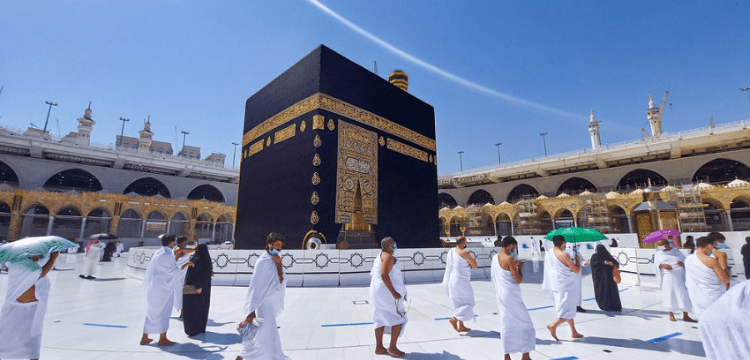[vc_row][vc_column][vc_column_text dp_text_size=”size-4″]Under the Hajj Sponsorship Scheme, the Federal Government has received only 6,500 applications for 44,500 available seats.
According to sources, the government increased Hajj expenditure by 36% compared to last year, owing primarily to the depreciation of the Pakistani rupee against the US dollar.
Pakistan has been allocated a Hajj quota of 179,210 by the Saudi authorities for the year 2023. The government, however, cannot afford to allow a massive capital flight due to severe economic constraints.
According to the Hajj Policy, the allocated quota will be divided 50/50 between the Government and Private Hajj Schemes.
A quota of 50% each shall be reserved for the Sponsorship Scheme from the Government and Private Hajj Schemes.
Read More: Saudi Arabia to give 9000 electric vehicles for umrah pilgrims and Grand Mosque visitors.
Applicants will be required to deposit their Hajj dues in foreign currency remitted from abroad under the Sponsorship Scheme and will not be permitted to deposit the Hajj dues from foreign currency accounts in Pakistan.
Due to financial constraints, the government decided to implement a “Sponsorship Scheme” to provide half of its citizens’ Hajj quotas to Pakistanis living abroad.
According to the draught Hajj Policy, the Government Hajj quota is expected to generate approximately $194 million, while the Private Hajj Scheme is expected to generate more than $250 million, depending on the cost of various packages and the number of applications received.
Keeping this in mind, the government has decided to offer non-resident Pakistanis half of the quota, or 89,605. According to an official, non-resident Pakistanis could either use the quota themselves or sponsor someone from Pakistan.
Officials estimated that offering half of the quota to non-resident Pakistanis could save around $440 million.
The tentative Hajj Package for the North Region (Multan, Lahore, Sialkot, Islamabad Rahim Yar Khan, Faisalabad, and Peshawar) for the year 2023 is Rs. 1,165,000/ and for the South Region (Karachi, Sukkur, and Quetta) is Rs. 1,125,000/.
During the previous year, the cost of Hajj per Haji was around Rs. 860,000. According to data, the cost of Hajj for Pakistani nationals increased by approximately 36% over the last year due to the free fall of the local currency against the US dollar.
According to sources, the government received approximately 72,000 applications from locals and approximately 6,500 from foreigners during the specified time period. Under the government scheme, the government expected 44,500 applications for the New Hajj Sponsor Scheme.
Instead of the expected 6,500 applications, the government received only 6,500.
The Hajj Sponsorship Scheme, which was launched for overseas Pakistanis, completely failed to meet its objectives because there was no interest in the scheme from overseas Pakistanis. The government set a target of 89,000 applicants, but it also fell short.
The government received fewer than 80,000 applications through both regular and sponsorship schemes, which was approximately 10,000 fewer than the target. The government is forced to give up the Hajj quota due to a lack of applicants.
It is the first time that the government has been unable to use its Hajj quota due to the country’s economic crisis.
This year’s Government Hajj Scheme required $284 million in foreign exchange cover. The Ministry’s Pilgrims Welfare Fund (PWF) Hajj collection account will provide the matching Rupee cover for this allocation.
If the Government Sponsorship Scheme’s full quota is used, the dues will be $194 million, as intending pilgrims will deposit total Hajj dues, including airfare and service charges, in foreign currency. According to the scheme’s draught, $90 million (284-194) will be required from the State Bank of Pakistan (SBP) in that case.
The Government Hajj quota sponsorship scheme worked on a first come, first served basis. However, because of the low level of interest from overseas, the first come, first served formula could not be used.[/vc_column_text][/vc_column][/vc_row]











